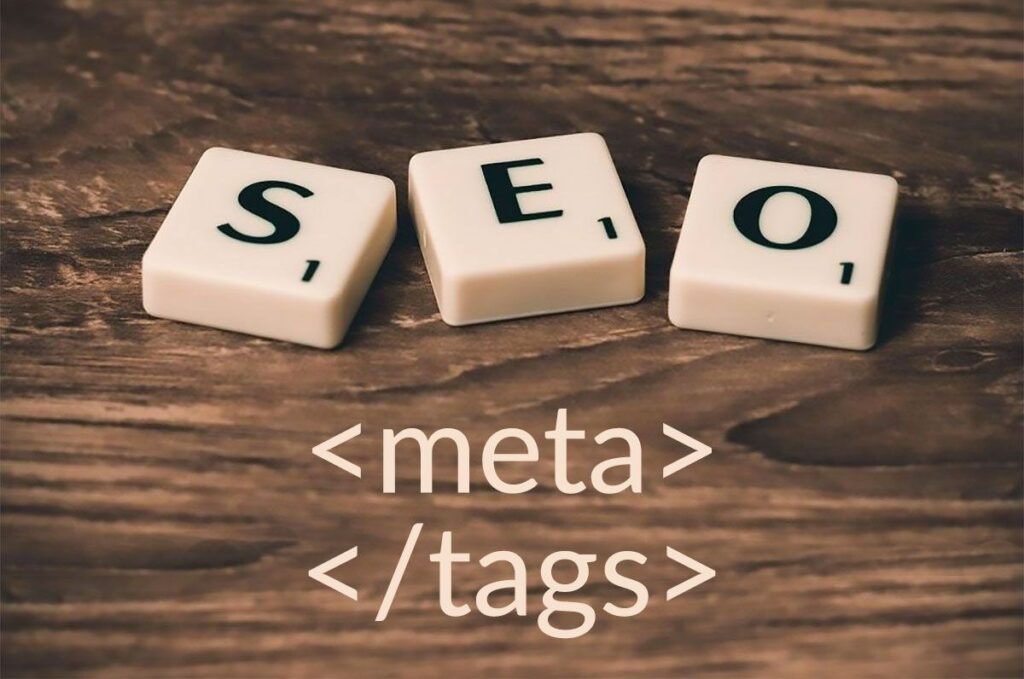Optimizing title tags is crucial for improving website traffic and search engine rankings. In order to achieve higher rankings, your title tags must be optimized with relevant keywords and accurately describe the content on the page.
When it comes to seo, title tags are critical in helping search engines understand the subject matter of a webpage. Title tags are html elements that describe the content of a webpage and appear in search engine results as the clickable headline of a search result.
By optimizing your title tags with relevant and targeted keywords, you can significantly improve click-through rates and increase your website’s visibility to potential customers. In this article, we’ll discuss the importance of optimizing your title tags, how to write effective and optimized tags, and best practices for incorporating keywords.

Credit: www.mtu.edu
Crafting Effective Seo Title Tags
Understanding The Key Elements Of A Good Seo Title Tag
A title tag is an html tag that dictates the title of a webpage. It is one of the essential on-page seo elements that help search engines understand what a web page is all about. Here are the key elements of an effective seo title tag:
- Keywords: Including relevant keywords in the title tag is crucial because it gives search engines an idea of what users can expect to see on the webpage. However, avoid stuffing keywords in the title tag, as it may result in the webpage getting penalized for keyword stuffing.
- Length: Google typically displays up to 70 characters of a title tag. Therefore, make sure to keep your title tag concise and within a specific character limit.
- Relevance: The title tag should describe the page’s main topic accurately. It should be relevant to the search query and provide value to the user. This helps search engines identify content that is useful to users, therefore leading to higher rankings.
Tips For Creating Optimized, Clickable Title Tags That Appeal To Both Users And Search Engines
A compelling title tag hints at the content of the page and entices users to click through to visit your website. Here are tips for creating optimized, clickable title tags:
- Include relevant keywords: Identify the keywords relevant to the webpage content and include them strategically in the title tag to attract both the search engine and the user’s attention.
- Create a sense of urgency: Use phrases like “limited time offer” or “don’t miss out” to entice users to click through to your website.
- Use emotional elements: Incorporate emotional language to evoke an emotional response in users, such as “inspirational,” “funny,” or “thought-provoking.”
- Add numbers: Numbers in the title tag grab the user’s attention and suggest specific information promised on the webpage, such as “10 tips” or “5 hacks”.
- Personalize: Using first and second-person pronouns in the title tag speaks directly to the user and creates a personalized experience.
- Use action words: Use verbs in the title tag to create a sense of action and encourage users to take action on your site.
Examples Of Effective Seo Title Tags
Here are some examples of effective seo title tags that adhere to key elements and best practices:
- How to make homemade pizza | best pizza recipe | xyz
- 5 surprising benefits of daily exercise | xyz
- Limited time offers | get 50% off your purchase | xyz
- Diy: Design your own room | affordable home decor ideas | xyz
By following these tips and incorporating the essential key elements of a good seo title tag, you can create title tags that grab the user’s attention, improve your click-through rate, and enhance your website’s overall seo performance.
Best Practices For Seo Title Tag Optimization
Title tags play a vital role in search engine optimization (seo) as they are the first pieces of content that users see in search engine results pages (serps). Thus, optimizing title tags can have a significant impact on the chances of a page getting clicked.
In this blog post, we will discuss the best practices for optimizing title tags for better seo performance.
Key Elements To Consider When Optimizing Title Tags For Search Engines
Below are some vital elements to consider when optimizing title tags:
- Character limit: Keep the length of your title tag between 50-60 characters to ensure that it doesn’t get truncated in serps.
- Relevance: Ensure that the title tag accurately represents the content of the page and is relevant to the user’s search intent.
- Branding: Include the brand name in your title tag, especially if your website is significant and well-known.
- Unique: Ensure that each page on your website has a unique title tag to avoid confusing search engines and users.
Understanding The Role Of Keywords In Seo Title Tags
Keywords play an essential role in optimizing title tags for seo. Below are some key points to remember:
- Do keyword research to determine the most relevant and popular keywords to target.
- Include your primary keyword in the title tag to signal to search engines what the page is about.
- Avoid keyword stuffing or using irrelevant keywords in your title tag as this could negatively impact your search engine rankings.
Tips For Using Modifiers And Variations To Increase The Relevance And Appeal Of Your Title Tags
Modifiers and variations are additional words or phrases that you can include in your title tag to make it more appealing and relevant to the user’s search intent. Below are some tips:
- Use question words (what, how, why, etc.) To create a sense of curiosity and relevance.
- Add power words (best, top, ultimate, etc.) To create a sense of authority and value.
- Use brackets or parentheses to add additional context or details to your title tag.
By following the best practices outlined above, you can optimize your title tags to improve your website’s search engine rankings and attract more organic traffic.
Common Seo Title Tag Mistakes To Avoid
Common Pitfalls To Avoid When Crafting Seo Title Tags
When it comes to crafting an seo title tag, it’s important to pay attention to certain details to avoid making common mistakes that could negatively impact your search engine rankings. Here are some of the most common pitfalls to avoid:
- Duplicate title tags: Using the same title tags across multiple pages can cause confusion for search engines and lead to penalization. Each page should have a unique and descriptive title tag.
- Keyword stuffing: Overloading your title tag with keywords may seem like a good idea, but it can be detrimental to your rankings. Your title tag should be readable and make sense to human readers.
- Irrelevant titles: Your title tag should accurately describe the content on the page. If it doesn’t, it can lead to high bounce rates and decreased engagement.
- Lengthy titles: Your title tag should be concise and to the point. Title tags that are too long will be truncated in search results, preventing users from seeing the full title and potentially causing them to skip over your page.
Understanding Penalties And The Consequences Of Poor Seo Title Tag Optimization
Poor seo title tag optimization can result in penalties that can negatively impact your search engine rankings. Here are some consequences to watch out for:
- Decreased visibility in search results: Poorly optimized title tags can cause your pages to appear lower in search results, making them less visible to potential visitors.
- Decreased click-through rates: If your title tag is too vague or misleading, users may choose to click on another search result instead of yours.
- Penalties and algorithm updates: Google frequently updates its algorithms to weed out websites that engage in black hat seo practices like keyword stuffing. If your website is caught engaging in these practices, it can be penalized and removed from search results.
Examples Of Ineffective Or Harmful Seo Title Tags
Here are some examples of ineffective or harmful seo title tags to avoid:
- Home – my website: This title tag is too vague and does not accurately describe the content on the page.
- Best dental services | cheap dental care – my dental clinic: This title tag includes multiple keywords and is optimized for search engines rather than human readers.
- Untitled document: This title tag is not descriptive and does not provide any context for potential visitors.
Remember, a well-crafted title tag can make all the difference in your search engine rankings. Take the time to craft unique, descriptive, and engaging title tags for each of your pages to ensure the best possible results.
Measuring The Effectiveness Of Your Seo Title Tags
Understanding The Metrics Used To Track The Performance Of Your Seo Title Tags
To measure the effectiveness of your seo title tags, you need to track and analyze several important metrics. Some metrics to consider include:
- Click-through rates (ctrs): This metric tells you how many people clicked through to your website after seeing your seo title tag in search engine results pages (serps). A higher ctr indicates that your title tag is doing a good job of attracting clicks.
- Impressions: This metric measures how many times your seo title tag has been shown in search engine results pages. A higher number of impressions indicates that your title tag has better visibility, although it doesn’t tell you whether people are actually clicking through.
- Rankings: This metric tells you where your website ranks in serps for specific keywords. If your website ranks higher, it’s more likely to attract clicks and increase traffic.
- Bounce rates: This metric tells you how many people visit your website but leave immediately without taking any action. A high bounce rate could indicate that your title tag is misleading or not relevant to your content.
Tips For Analyzing And Interpreting Data To Improve Your Seo Title Tag Optimization Strategies
Once you’ve gathered data on the metrics mentioned above, you need to analyze and interpret the results to improve your seo title tag optimization strategies. Here are some tips:
- Pay attention to the ctrs and adjust your title tags accordingly. If your ctr is low, try to make your title tags more enticing by using strong keywords and adding a sense of urgency to the wording.
- Monitor your keyword rankings and identify which keywords bring in the most traffic. Use this information to optimize your title tags for those keywords.
- If you’re getting a lot of impressions but a low ctr, consider tweaking your title tag to make it more compelling or informative.
- Check your bounce rates to see if people are finding what they need when they click through to your website. If not, adjust your title tags to better reflect your content.
Tools And Resources For Measuring The Effectiveness Of Your Seo Title Tags
There are plenty of tools and resources available to help you measure the effectiveness of your seo title tags. Here are some of the most popular:
- Google analytics: This free tool provides detailed information on your website’s traffic, including ctrs, impressions, rankings, and bounce rates.
- Google search console: This tool gives you data on how your website appears in search results, including impressions, click-through rates, and the keywords that are driving traffic.
- Moz: This seo software suite offers a range of features, including keyword tracking, site audits, and rank tracking.
- Semrush: This suite of seo tools allows you to analyze your website’s traffic, track keyword rankings, and monitor backlinks.
By using these tools and resources, you can gain valuable insight into how your seo title tags are performing and how you can improve them to attract more traffic to your website.
Frequently Asked Questions Of Seo Title Tag Optimization
How Important Is Optimizing Title Tags For Seo?
Optimizing title tags is very important for seo as it helps search engines understand what your page is about and how it’s relevant to users’ search queries. A well-optimized title tag can increase the visibility and click-through rate of your web pages in search results.
What Are The Best Practices For Writing Seo-Friendly Title Tags?
To write seo-friendly title tags, make sure they accurately describe the content on your page, include relevant keywords near the beginning, use unique tags for every page, keep them under 60 characters, and write in a compelling way that entices users to click.
Can Having Duplicate Title Tags Negatively Affect My Seo?
Having duplicate title tags can negatively affect your seo as it can result in search engines misunderstanding the content on your pages, which can lead to them being ranked lower in search results. It’s important to ensure each page on your website has a unique and descriptive title tag.
How Do I Check The Title Tags On My Website?
There are various tools you can use to check the title tags on your website, including google search console, screaming frog, and moz. These tools will analyze your website and identify any errors or issues with your title tags so you can correct them as necessary.
Should I Include My Brand Name In Every Title Tag?
Including your brand name in every title tag isn’t necessary, but it can help increase brand recognition and trust. However, it’s recommended to prioritize including relevant keywords and descriptive language over including your brand name if it doesn’t fit naturally into the title.
Conclusion
Optimizing your seo title tag is a key component in enhancing your website’s visibility on search engines. It is crucial to keep in mind that the title tag represents the first impression of your content to both search engines and users.
Therefore, it is important to create a title tag that is not only keyword-optimized, but also informative and appealing. Remember to keep it brief, to the point, and focused on the main topic of your content. Following the guidelines of proper keyword placement, using effective modifiers, and avoiding duplicate title tags are important steps towards achieving better seo results.
By paying attention to these details, you’re sure to get ahead of your competitors and improve your website’s overall ranking on search engine result pages. So, keep these tips in mind and start optimizing your title tags to rank higher today!




